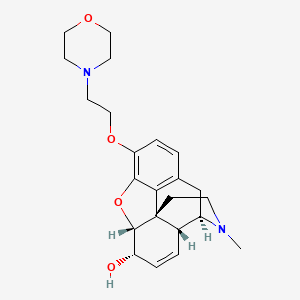Malaysia’s MOH Contract Pharmacists: Stuck in Limbo?

Background & History of Contract Pharmacist System in MOH
Ever since 2016, the Malaysian government started employing doctors, pharmacists and dentists on a contract basis with pharmacists being hired by contract as provisionally registered pharmacists (PRPs) for one year (with a maximum one-year extension) and thereafter, as compulsory service for another year. A third-year contract is offered for those who did not get permanent posting as a grace period for them to seek other opportunities out of public service.
After more than 4 years since the first batch of contract pharmacists implementation in the Ministry of Health, Malaysia (MOH) i.e Batch Dec 2016, we have seen around 30% of contract pharmacists receiving their permanent posting to continue their services in public health facilities whereas the remnants’ fates are unknown. Previously, two further extensions have been offered;
1) on 15th April 2020, involving 1,139 contract UF41 pharmacists in view of greater requirement healthcare workforce to cope with COVID-19 outbreak and
2) a further extension of 6 months contract as per announcement on 28th September 2020 that will soon end by May 2021
Recently, on 25th February 2021, MOH announced ANOTHER extended contract to be offered to 1,966 contract pharmacists without a defined period; On the contrary, contract Medical Officer (MO) and Dental Officer (DO) have received promotion of grading to UD43 and UG44 respectively as well as 585 MOs and 1,071 DOs will also receive the contract extension to continue their service in MOH.
While some batches are still miserably waiting for the listing of permanent posting to be announced, no further clarification has been made on the process of selecting permanent healthcare workers to be retained in public service. So far, only two conditions are known:
1) passing provisional training and
2) fulfilling the whole duration of compulsory services
We are afraid that contract extension with the same grading (UF41) will be continuously offered to our fellow contract pharmacists along with other contract healthcare professionals who are currently servicing in MOH according to the current trend in order to fill the large healthcare workforce requirement as part of curbing and mitigating COVID-19 pandemic. However, what will happen once the situation is under control and when things return to normal ? What will happen to these contract healthcare workers that are at risk of being disposed of ?
The imbalance of permanent pharmacists and contract pharmacist
Recently our Minister of Health, YB Datuk Dr Adham Baba stated that there are a total of 252,911 permanent staff and more than 40,000 staff under contract are servicing in KKM. According to the Pharmaceutical Services Programme, MOH, there are 18,128 pharmacists who are holding annual certificates in 2021 and around 11,700 of them are currently practising in government settings (Ratio of private pharmacists to government pharmacists= 1:1.86). To date, we have 145 public hospitals, 2,838 Klinik Kesihatan and 196 Klinik Komuniti that are accessible to nearly all of the population and consistently catering over 65% of the population.
Typically, around 20-50 pharmacists (varies according to the capacity of patients) are stationed in each hospital and averagely, more than 3 pharmacists (varies according to the capacity of patients) are required for each Klinik Kesihatan to ensure the pharmacy services are continuously functioning. Aside from dispensing at outpatient pharmacy department, pharmacists are in charge of the stock (medicinal and non-medicinal) management and requisition of all facilities, extensively involving in patient care by different branches through clinical pharmacy, inpatient pharmacy, Therapeutic Drug Monitoring (TDM) service, aseptic and Total Parenteral Nutrition (TPN), Cytotoxic Drug Reconstitution (CDR) and other ambulatory services such Medication Therapy Adherence Clinic (MTAC), pain clinic, smoking cessation service, and dispensing methadone. Moreover, government pharmacists are also serving in administration, strategic planning division, regulatory (NPRA) and enforcement. Pharmacists are one of the pillars in the public healthcare system that have been effortlessly working throughout the line of care and services, from behind the scene to direct patient cares.
However, with an increasing number of contract pharmacists being hired and deployed in services each year, we can foresee a high staff turnover rate after 2 years of compulsory servicing and towards the end of third year extension contract (Pelantikan semula). Aside from that, contract pharmacists are mostly not being prioritised for training due to the short duration of expected serving time-frame in MOH. These are two very concerning factors as well as inexperience due to minimal exposures will lead to pharmacy services being gradually impacted negatively mainly on their consistency, efficiency and quality. Public health and wellbeing are put at stake and are potentially compromised in the long run.
MOH Contract Pharmacists: Please Listen to our Pleas!
The issue of contract pharmacists, similarly with our healthcare counterpart doctors, is fashionably paradoxical: on one hand, there are too many candidates fighting over limited and unknown number of permanent positions in government. On the other, insufficient pharmacists are serving the underfunded and overstretched public health care system.
On the same day when it was announced that contracts of 1,966 contract pharmacists will be extended on 25th February 2021, Malaysian Pharmacists Society- Young Pharmacists Chapter (MPS-YPC) has taken the initiative to do a quick survey to understand the thoughts and perceptions of our fellow contract pharmacists on this extension and possible contracts to be offered in future. We had a total of 563 respondents with more than 80% of them currently serving as contract Fully Registered Pharmacist (FRP) Grade UF41 (Figure 1). Based on the survey, we have seen around 60% of the surveyees are in favour with the decision on extending contracts continuously in order for them to stay in the public services. (Figure 2)

Limited Career Progression & Training, Inequality between Contract and Permanent Pharmacists
Many of them are still hoping to get retained and be taken in as permanent public servants; whereas some view the extension of contract as a lifesaver during this pandemic as job opportunities are gravely reduced due to the negative economic impact. However, this will compromise their future career progression and cause more uncertainties the longer they stay under contract. On the contrary, those who opposed such decisions in extending contracts endlessly have expressed unfairness towards them as they think they deserved permanent posting. They seek for better clarification on contract terms and transparency on the selection criterias for permanent positions. For example, one of the respondents expressed that he scored high average marks in logbook and 97% in annual assessment report (LNPT), yet he was not given a permanent contract. Majority of the contract pharmacists have expressed their dissatisfaction towards the inequality of treatment between permanent staff that have the same grading or with equivalent years of services as those who are under contract in their facilities. They are being asked to carry out the tasks of PRP such as PRP on-call shifts but none of the permanent staff are required to do these. Why the big fuss, you ask? In long run, it does not give them any long-term benefits in career development and growth as some are not given any portfolios and proper training (eg. MTAC) nor given the opportunity to attend courses as those are being offered to permanent staff.
In conclusion, these contract pharmacists are seeking for closure, as the contract system does not benefit them in terms of professional development and growth. It does, however, provide the necessary manpower with lower costs especially during this pandemic. Some hope that a recommendation letter can be given to these contract pharmacists based on their performance in public services which will help to add value into their resumes as they seek to apply for jobs in the private sector. Announcement of permanent listing needs to be timely and shall not be delayed as this will help them in their decisions when it comes to seeking a job elsewhere if they are not shortlisted

MOH Contract Pharmacists: Please Treat Us Equally Too !

Lastly and unsurprisingly, 86.9% of the respondents are unfavoured and against the extension of contract without promotion in remuneration and increasing in gred (as UF41) even after 3 years of serving whereas for permanent staff, they will receive promotion to grade UF44 after the same duration of service. (Figure 3) Many of them agree and are more willing to serve under contract if they receive the same promotion in remuneration and grading like contract MO and DO. Contract MO and DO have received promotion of grading granted to UD43 and UG44 respectively although they are serving as contract like these contract pharmacists. All contract healthcare workers in the same healthcare system should receive the same benefits across. It could be seen as a short-term acceptable trade for some of them who are not getting permanent postings to serve patients passionately in the public sector. Most importantly, equal treatments with other fellow contract healthcare workers will be able to provide a sense of value, affirmation and appreciation in return for their services in public service.
They are serving under a system with inconsistencies and uncertainties, which frankly speaking, will further dim the remaining drive and desire in these budding pharmacists in serving the patients.
Contract pharmacists are in favour of the extension contracts that are being offered by KKM especially in the time of COVID-19. However, the majority of them have demanded fair treatments and increase in remuneration and grading according to the period of service. The Minister of Health stated that 63% of yearly allocated budget to MOH have been used to pay for the basic salary of staff which exclude allowances. This was recorded as one of the highest percentages of expenditure from the overall budget compared to 18 European countries and 64 other countries (42.3% and 42.2%, respectively). However, healthcare workers are undeniably important to safeguard the public’s health and wellbeing, and such expenditures are essential and unavoidable to ensure the provision of continuity quality care to the growing population in Malaysia. All healthcare workers are essential, including the contract staff, such as our fellow contract pharmacists in public service. They should not be neglected in any ways.
The opinions expressed in the article are the writers’ own and do not reflect the view of MPS YPC.













